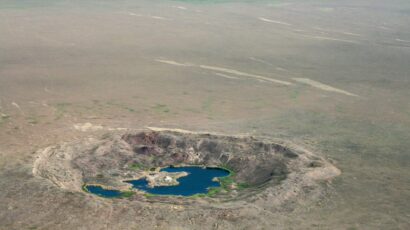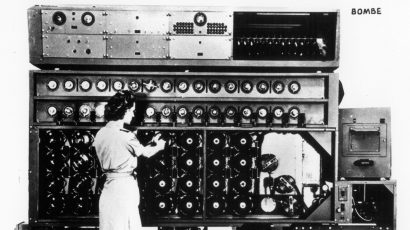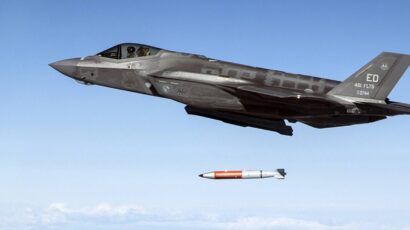Search results for
Putting the cost of going green in context
Editor's note: The following column was coauthored by Benjamin Urquhart, a research associate at Harvard University's Center for the Environment, and Mark Winkler, a PhD student at Harvard's School of Engineering and Applied Sciences.
Russian nuclear weapons, 2024
Russia is modernizing all its Soviet-era nuclear-capable systems. We estimate that Russia now possesses about 4,380 nuclear warheads.
How politics and business are driving the AI arms race with China
Commercial competition, politics, and public opinion are driving AI development in the United States—and unnecessarily escalating the AI arms race with China.
Alan Miller: How the News Literacy Project teaches schoolchildren (and adults) to dismiss and debunk internet disinformation
In this interview, Alan Miller explains how the News Literacy Project came to be and what he thinks needs to happen if the worst impacts of the disinformation tsunami that has swamped the internet in recent years are to be mitigated.
JAIC: Pentagon debuts artificial intelligence hub
The Defense Department is initiating a whole new approach to artificial intelligence, and maybe even to technology development and procurement. But in the long run, the new program’s most important implications may concern ethics and safety.
The Bulletin of the Atomic Scientists announces the complete John A. Simpson Archive
The Bulletin of the Atomic Scientists is pleased to announce the creation of the complete John A. Simpson Archive, a searchable archive of the Bulletin containing every issue published since our founding in 1945. The archive is named in honor of John Alexander Simpson, a key Bulletin founder and longtime member of its Board of … Continued
Spotting AI-generated content is too hard. Look for credible sources instead.
The public should be educated on the capabilities of AI models and on trusting content only from verified sources.
Nuclear Notebook: Indian nuclear forces, 2020
We estimate that India currently operates eight nuclear-capable systems: two aircraft, four land-based ballistic missiles, and two sea-based ballistic missiles. At least three more systems are in development, of which several are nearing completion and will soon be combat-ready. Beijing is now in range of Indian ballistic missiles.
Keeping classified information secret in a world of quantum computing
The “race” for quantum supremacy against China is significantly overstated. Analysts should redirect attention to protecting classified information against future attacks by quantum computers, a more pressing and manageable problem.
Cut emissions, save 317,000 people: What a nationwide clean electricity standard could do
Adopting a proposed federal standard that calls for 80 percent of the nation’s electrical power to be composed of renewables by 2030 would swiftly cut planet-heating emissions and save hundreds of thousands of lives from deadly air pollution, says new report.
Quantum supremacy: not a Jason Bourne movie
In a development at the edge of scientific advance and journalistic descriptive capabilities, a group of Google researchers say they have achieved the science fiction-sounding feat known as “quantum supremacy.” In a paper published in Nature, members of Google’s AI Quantum team describe their successful efforts to create a computer that capitalizes on the laws … Continued
Silicon Valley defense contracts will really hit ‘em where it hurts
Won't someone please think of the shareholders? The tech industry’s controversial defense contracts may soon cost them.
Cyberwarfare ethics, or how Facebook could accidentally make its engineers into targets
If they participate in military cyberoperations—intentionally or not—could employees at Facebook, Google, Apple, Microsoft, and many other tech firms be considered “civilians directly participating in hostilities” and therefore legitimate targets of war?
Nuclear weapons sharing, 2023
This Nuclear Notebook issue examines the current state of global nuclear sharing arrangements, which include non-nuclear countries that possess nuclear-capable delivery systems for employment of a nuclear-armed state's nuclear weapons.
How YouTube was recommending kids’ videos to pedophiles
YouTube’s recommendation engine is an artificial-intelligence-based system designed to automatically push users videos that stand a good chance of keeping them on the platform longer. It’s been in the news a lot this year. In January, for instance, YouTube tweaked its system in response to criticism that the recommendation engine led users to conspiracy videos … Continued
Rage against the machine owners: Brian Merchant on Luddite lessons for 21st-century technology
The Luddite struggle can help us understand how wealth and power can become concentrated in the hands of a few at the expense of many.
Nuclear Notebook: Israeli nuclear weapons, 2022
This issue of the Nuclear Notebook examines Israel’s nuclear arsenal, which we estimate includes a stockpile of roughly 90 warheads. Israel neither officially confirms nor denies that it possesses nuclear weapons, and our estimate is therefore largely based on calculations of Israel’s stockpile of weapon-grade plutonium and its inventory of operational nuclear-capable delivery systems.
Krypton 85 monitoring: Solution to clandestine reprocessing
One of the many obstacles to reaching an arms-control agreement with North Korea revolves around the risk that undeclared, clandestine nuclear facilities might exist in that country, which—if they remain undetected—would allow the Kim Jong-un regime to maintain and continue its military nuclear ambitions. It is therefore very important that any agreed-upon denuclearization of the … Continued
What would Russia nuke?
Last week, Reuters reported that a Russian television broadcast had identified five targets in the United States that Moscow would strike if nuclear war broke out. Although a spokesman for Russian President Vladimir Putin denied naming specific sites, the broadcast appeared on Russian state TV and included a video narrated by Dmitry Kiselyov, who … Continued


















